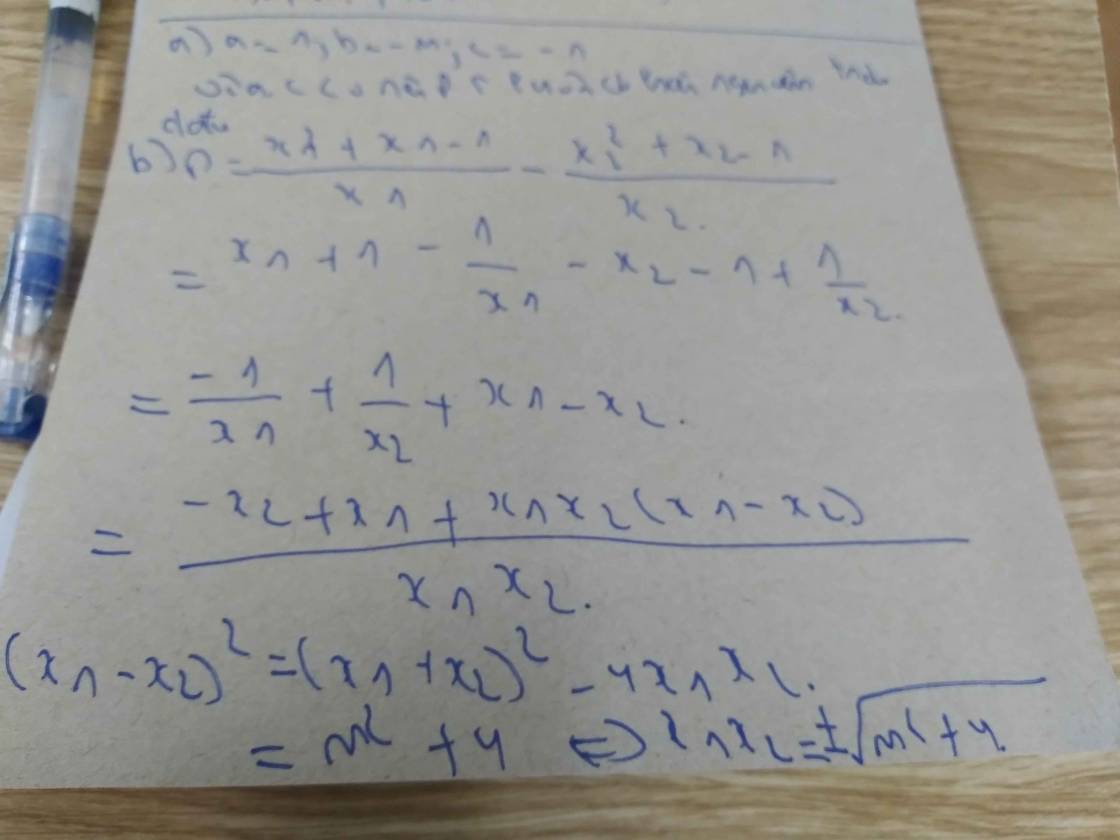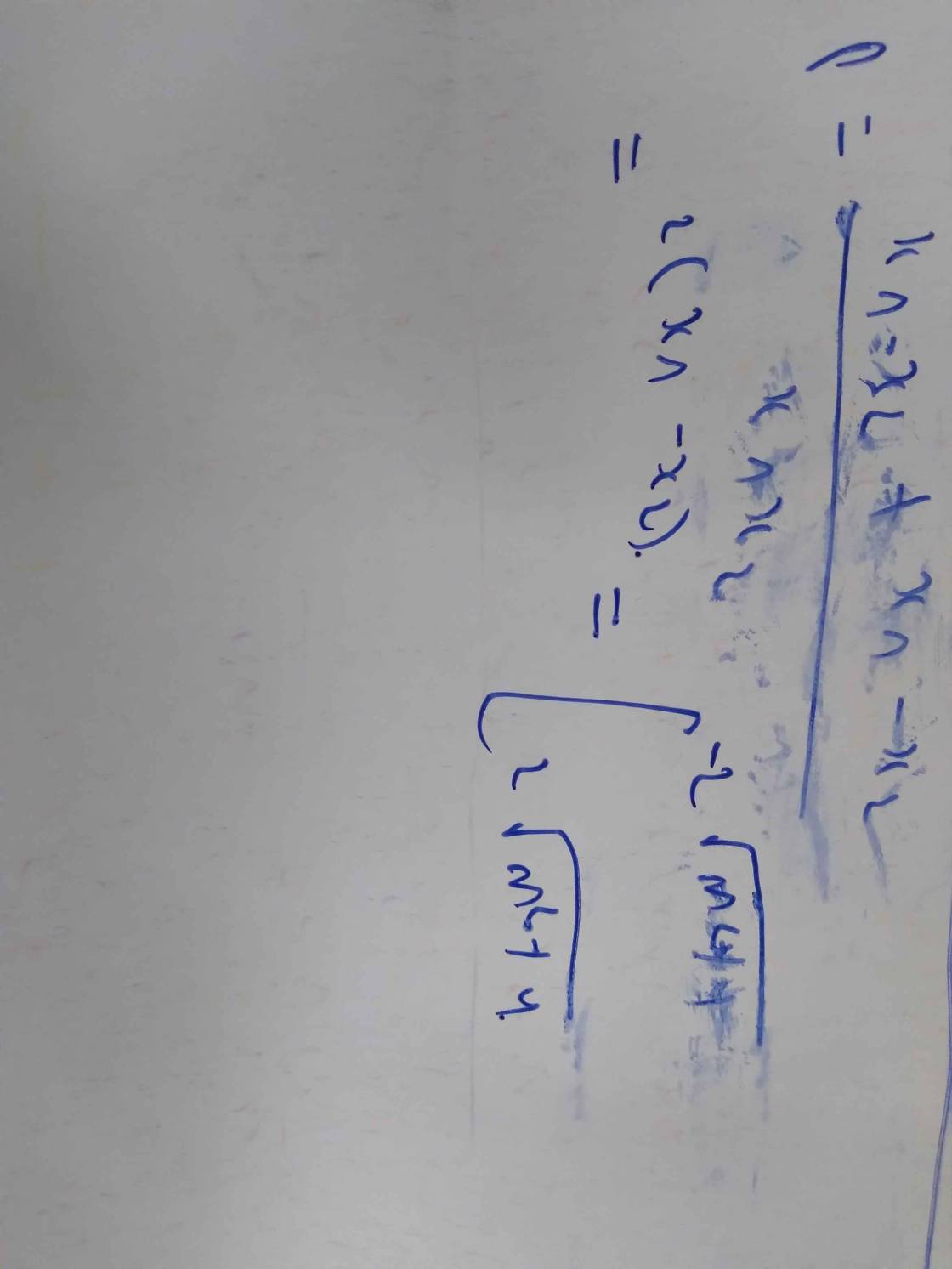
Hãy nhập câu hỏi của bạn vào đây, nếu là tài khoản VIP, bạn sẽ được ưu tiên trả lời.


Ta có: \(x^2-2\left(m+1\right)x+m-4=0\)
Phương trình có hai nghiệm phân biệt khi △'>0\(\Leftrightarrow\left(m+1\right)^2-m+4>0\Leftrightarrow m^2+m+5>0\)(luôn đúng)
Theo Vi-ét \(x_1+x_2=2\left(m+1\right);x_1x_2=m-4\)
\(A=x_1+x_2-2x_1x_2+2021=2\left(m+1\right)-2\left(m-4\right)+2021=2031\) không phụ thuộc vào m

Làm câu b)
Để phương trình có hai nghiệm phân biệt:
\(\Delta'\ge0\Leftrightarrow3^2-\left(m+1\right)\ge0\Leftrightarrow m\le8\)
Áp dụng định lí Vi-ét ta có:
\(\hept{\begin{cases}x_1+x_2=6\\x_1.x_2=m+1\end{cases}}\)(1)
Xét: \(x^2_1+x^2_2=3\left(x_1+x_2\right)\Leftrightarrow\left(x_1+x_2\right)^2-2x_1x_2=3\left(x_1+x_2\right)\)(2)
Từ 1, 2 ta có:
\(6^2-2\left(m+1\right)=3.6\Leftrightarrow m=8\)(tm)
Vậy ...

Theo hệ thức Viet: \(\left\{{}\begin{matrix}x_1+x_2=-2\\x_1x_2=-8\end{matrix}\right.\)
\(M=x_1\left(1-x_2\right)+x_2\left(1-x_1\right)\)
\(=x_1+x_2-2x_1x_2\)
\(=-2-2.\left(-8\right)=14\)

Δ=(2m-2)^2-4(2m-5)
=4m^2-8m+4-8m+20
=4m^2-16m+24
=4m^2-16m+16+8=(2m-4)^2+8>=8>0 với mọi m
=>Phương trình luôn có hai nghiệm phân biệt
\(B=\dfrac{x_1^2}{x^2_2}+\dfrac{x_2^2}{x_1^2}\)
\(=\dfrac{x_1^4+x_2^4}{\left(x_1\cdot x_2\right)^2}=\dfrac{\left(x_1^2+x_2^2\right)^2-2\left(x_1\cdot x_2\right)^2}{\left(x_1\cdot x_2\right)^2}\)
\(=\dfrac{\left[\left(2m-2\right)^2-2\left(2m-5\right)\right]^2-2\left(2m-5\right)^2}{\left(2m-5\right)^2}\)
\(=\dfrac{\left(4m^2-8m+4-4m+10\right)^2}{\left(2m-5\right)^2}-2\)
\(=\left(\dfrac{4m^2-12m+14}{2m-5}\right)^2-2\)
\(=\left(\dfrac{4m^2-10m-2m+5+9}{2m-5}\right)^2-2\)
\(=\left(2m-1+\dfrac{9}{2m-5}\right)^2-2\)
Để B nguyên thì \(2m-5\in\left\{1;-1;3;-3;9;-9\right\}\)
=>\(m\in\left\{3;2;4;1;7\right\}\)

